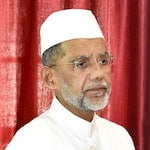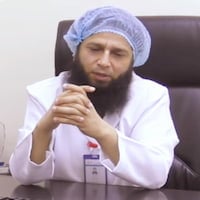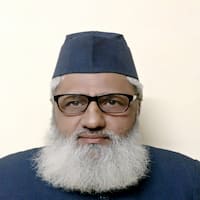Introduction To Unani Medicine – Level 1
Course

About The Course
The Unani Medicine has a status of global medicine travelled across the civilizations, cultures, geographies and regions. Unani medicine having its roots in Egyptian and Mesopotamian traditions (3000 BC) was founded on its philosophical principles by the ancient Greek (500 BC). It was developed and flourished mainly in the Islamic Civilization by the Arabs, Europeans (Spain), Central Asians, Persians and lastly in the Indian subcontinent.
Course Team
At A Glance
 12 Live Online Sessions
12 Live Online Sessions  Duration: 4+ Months
Duration: 4+ Months  Saturdays, 3:00PM TO 4:00PM (London, UK)
Saturdays, 3:00PM TO 4:00PM (London, UK)  Video Recordings Available
Video Recordings Available  Access to Mobile App
Access to Mobile App  Digital Certificate
Digital Certificate  From £22.49/Month (For 4 Months)
From £22.49/Month (For 4 Months)
Enroll Now
- Starts on 5th October 2024
- Course Fee:
Pay in Full:£99.99£79.99
(Providing a 30% scholarship on this Course)
Pay in 4 Installments: £22.49 per month - Registration Deadline: 4th October 2024
Al Balagh Scholarship
AlBalagh Scholarship is available for learners who cannot afford the fee. Learn More and Apply
Course Overview
The Unani Medicine has a status of global medicine travelled across the civilizations, cultures, geographies and regions. Unani medicine having its roots in Egyptian and Mesopotamian traditions (3000 BC) was founded on its philosophical principles by the ancient Greek (500 BC). It was developed and flourished mainly in the Islamic Civilization by the Arabs, Europeans (Spain), Central Asians, Persians and lastly in the Indian subcontinent.
Learning Objectives
The key objectives of this course are:
- To provide detailed information about the medical tradition of Unani medicine.
- To enhance knowledge of Unani medicine and how to apply this in practice.
Learning Outcomes
On completion of this course, the students will:
- Have a better understanding of the tradition of Unani medicine.
- Be acquainted with the fundamentals of Unani medicine and its usage in practical life.
MODULES
Module 1
Introduction
Module 2
Introduction to Unani Medicine
Module 3
Fundamentals of Unani System of Medicine
Module 4
The Seven Natural Factors (Al-Umoor Al-Tabiyah)
Module 5
Disease, Diagnosis & Treatment in Unani Medicine
Module 6
Preventive and Promotive Healthcare
Module 7
Therapeutic Approaches in Unani Medicine (Part One)
Module 8
Therapeutic Approaches in Unani Medicine (Part Two)
Module 9
Drugs in Unani Medicine (Part One)
Module 10
Drugs in Unani Medicine (Part Two)
Module 11
Unani Medicine Vs Modern Medicine – Comparative Analysis
Module 12
Career in Unani Medicine
Here is the course outline:
Welcome Aboard: Course Introduction |
WhatsApp Discussion Group |
Pre Course Survey |
LMS Orientation |
Session 1 - Introduction to Unani Medicine |
Session 2 - Fundamentals of Unani System of Medicine |
Session 3 - The Seven Natural Factors (Al-Umoor Al-Tabiyah) |
Session 4 - Disease, Diagnosis & Treatment in Unani Medicine |
Session 5 - Preventive and Promotive Healthcare |
Session 6 - Therapeutic Approaches in Unani Medicine (Part One) |
Session 8 - Therapeutic Approaches in Unani Medicine (Part Two) |
Session 9 - Drugs in Unani Medicine (Part One) |
Session 10 - Drugs in Unani Medicine (Part Two) |
Session 11 - Unani Medicine Vs Modern Medicine – Comparative Analysis |
Session 12 - Career in Unani Medicine |
Post Course Survey |




(3).png?lmsauth=401bc9a751a1384a01d518931aef05980231a962)
.jpeg?lmsauth=20c38b738ae72dadfffc864a114a427f837cf07e)




